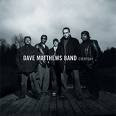Saturday, March 27, 2010
Talking Points #6
Sunday, March 21, 2010
Talking Points #5
In The Service Of What?
The Politics of Service Learning
By Joseph Kahne and Joel Westheimer
1.) "Moreover, when asked what they gained from the experience, many students said simply that it
taught them "that people can be different" from what you expect. Others arrived at a variety of deeper insights: '[The neighborhood] isn't as bad as the news makes it out to be.'"
- I chose this quote because I can definitely relate to it in my experiences thus far in service learning. Going in, I believed the kids/teachers would behave badly and wildly because of the conditions that they are in. My expectations were way off and the kids couldn't be better behaved.
2.) "Clearly. having students share their thoughts and experiences with one another can be valuable, but reflective activities (commonly in the form of journal entries and discussions) may simply reinforce
previously held beliefs and simplistic, if generous, conclusions."
- I thought this quote was quite interesting, and I'm sort of on the fence on whether I agree with it or not. With the journals I have written for my service learning, I think I am doing more than reinforcing previously held notions. I think I it is helping me realize things that I seeing in the classroom.
3.) "Rather than assume, erroneously, that all educators share the same vision, we think it is better to be explicit about the numerous and different visions that drive the creation and implementation of service
learning activities in schools."
- I chose this quote because it simplifies the whole article. Not all educators have the same motives about what they are trying to do in schools, and it is important to examine the different reasons that make for service learning in schools.
Thoughts: This article was a pretty easy read, probably because I read it on the plane ride back from Florida. All in all though, I thought it was sort of interesting, but I think the ideas that the authors were driving at were somewhat obvious to see. The two different cases of service learning that were shown showed that there are different reasons and objectives for different types of service learning. The one where the kid packed health packs for the homeless and delivered them had a different effect on the kid than if the kid had more one on one interaction with people. The article did make me think a little bit about my own service learning with VIPS, and it did make me think of how exactly it was affecting me.
Sunday, March 7, 2010
Talking Points #4
heads about how bad the world is, I provided them the opportunity to make a difference."
- I really liked this last quote at the end of the article. Christensen is teaching her students here that acknowledging the problems and injustices is not enough. Sitting there ashamed of the world and cynical won't do any good. So she gave the a chance to take the next step make change for the better.
